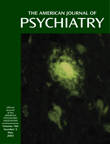In the Wake of 9/11: The Psychology of Terror
September 11, 2001, was a day that had profound effects on all Americans and citizens of other countries worldwide. Everyone was asking why it happened, and I know of no one who wasn’t horrified or didn’t have sympathy for the families of the victims, although it is said that many people in Muslim countries were joyous and celebrating. Eventually, though, as the weeks passed, many Europeans and non-U.S. Westerners were voicing views that the United States should look carefully at what its foreign policies did to incite these horrific events, and that support of Israel had brought the terror on us, as if there were a rational reason that justified this crime. Some views even have gone farther, berating the “Jews” for supposedly claiming to be God’s chosen people, entitled to the land of Israel by the Bible, as if being Jewish is not only synonymous with the governing body of Israel but also with views of entitlement.
What has happened to produce these events, thoughts, and actions, and can they be rectified? Pyszczynski, Solomon, and Greenberg think they have the answers in “terror management theory,” the idea that suppressing one’s thoughts of death by finding solace in a common culture is the premise for actions with good and bad consequences. Sometimes this leads to the collective need to annihilate groups of people whose beliefs go against one’s cultural norms; at other times these thoughts are suppressed by events that increase an individual’s self-esteem.
What Americans could have done as a result of an understanding of terror management theory to prevent the horror of September 11, 2001, and what those in power in the United States could have done is not clear in the message of this book. Moreover, what can be done in the future is also not well delineated. Instead, the text wanders through psychology laboratory experiments with student volunteers; these experiments manipulate the subjects’ mental reactions, and the results are extrapolated to world political conflicts between diverse cultures of peoples. One wonders how valid the conclusions can be. Many chapters and paragraphs repeat the authors’ premises over and over again, often beginning with the statement, “We believe….” It would have been nice to know what other mental health professionals believe about 9/11 and terrorism; there is a whole body of literature in this field other than that which is described in this volume.
The title of this book, In the Wake of 9/11: The Psychology of Terror, fills the reader with high hopes that when the final page is reached, the answers will be apparent. There are no answers that stand above the repetitive expounding of the authors’ beliefs, however. My conclusion is that a form of mass cultural paranoid psychosis occurred in its extreme. The high-jackers of the airplanes on 9/11 shared the common delusion that all Americans are evil and that they would be honored by God in an afterlife for causing massive destruction to American society. We have seen this in the past with mass suicides by extreme religious followers, with the exception that the 9/11 terrorists destroyed not only their own lives but also the lives of thousands of others.
We need to conduct research, but not with American university psychology students. To gain insights into common actions and behaviors among terrorists, future research might involve observing and interviewing random individuals who come from societies likely to produce terrorists, as well as close friends and relatives about specific individuals who have produced those terrorist acts. Individuals in these societies who have not been involved with terrorism could be used as controls. Perhaps then a better understanding of the psychological contributions to terrorist actions will emerge and mental health professionals can take a leading role in helping government officials deal with terrorism.



